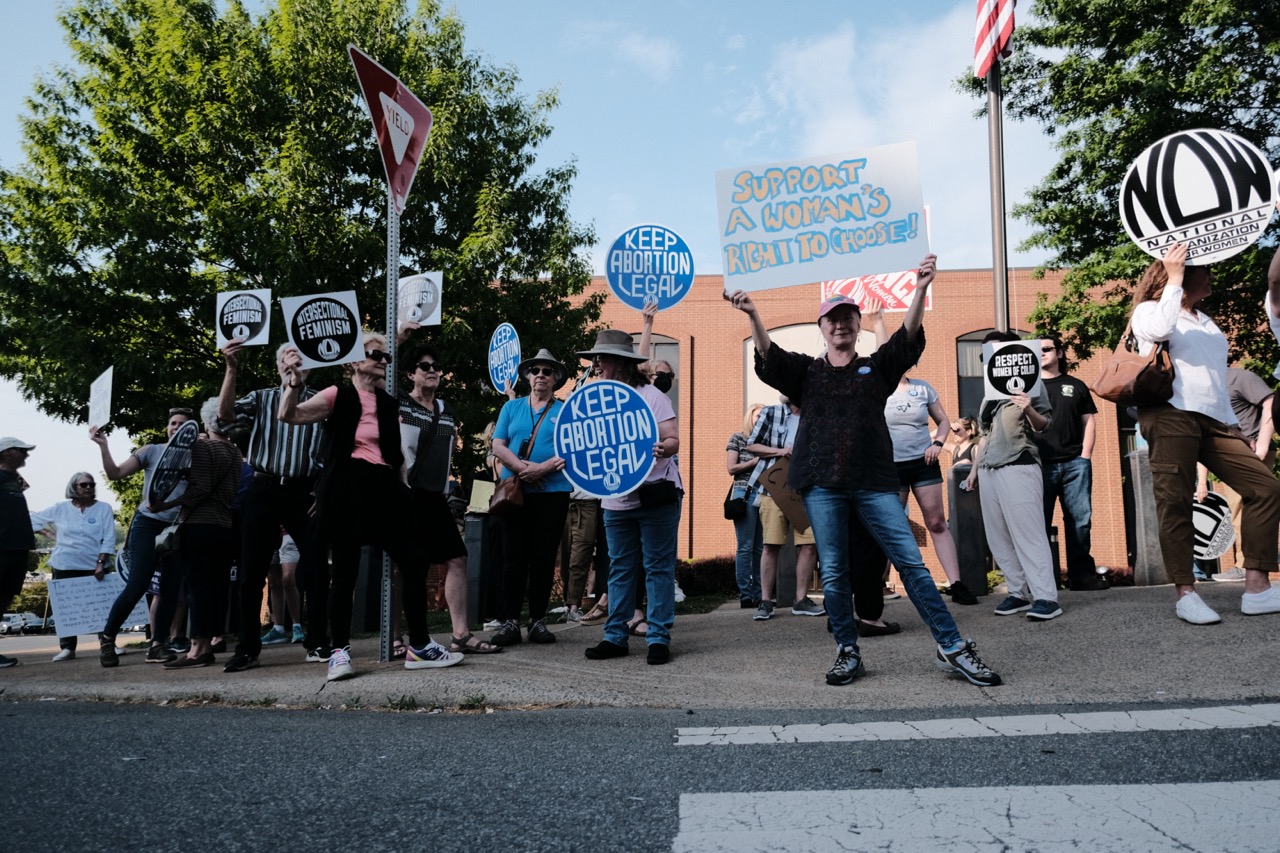Last month, the day after Politico published a draft U.S. Supreme Court opinion revealing the likelihood that Roe v. Wade will be overturned, the ACLU of Virginia issued a statement that said abortion rights were in “deep peril,” and the commonwealth was “literally just one vote away from banning abortion.”
Last week, that warning nearly became reality. Governor Glenn Youngkin—who, while on the campaign trail, vowed to “start going on offense” on abortion—added an amendment to the state budget that would prohibit state Medicaid funds from being used for abortion in cases of incapacitating physical or mental fetal deformities. It was defeated in the Senate, but the close vote laid bare the fragility of abortion rights in Virginia.
For people capable of getting pregnant—especially individuals in states with pro-life legislators—the leaked opinion and the resulting cascade of new state laws across the country restricting abortion access have caused panic and turmoil.
In a Reuters article, Christie Pitney, a CEO of a telehealth company in Washington D.C., reported that the number of people requesting prescriptions for or information about abortion pills has tripled since the draft opinion was leaked. Receiving these abortion pills by mail is becoming a popular workaround for people in states with restrictions on abortion.
While abortion remains legal in Virginia for now, Amy Hagstrom Miller, president and CEO of Whole Woman’s Health, an abortion clinic and virtual abortion provider, argues that it is more important than ever for Virginia to provide access to safe abortions as Roe v. Wade remains in limbo.
“Abortion is integral to the health of our communities, and this amendment will erode the access that Virginians of all socioeconomic levels count on,” Hagstrom said in a statement sent to C-VILLE before the amendment’s defeat.
“Restrictions like these do nothing to prevent unplanned pregnancies; they just prevent people from getting the safe, quality care they need and deserve,” she wrote.
Tannis Fuller, executive director of the Blue Ridge Abortion Fund, also emphasized the importance of abortion access for all socioeconomic groups in Virginia.
“The Blue Ridge Abortion Fund believes that everyone, regardless of their race, socioeconomic status, age, gender identity, or where they live, should have the agency and the resources to make their own decisions about their bodies,” says Fuller, who condemned Youngkin’s amendment as “unnecessarily cruel, and bad government.”
“Virginia’s refusal to allow Medicaid to cover abortion in every case is unreasonable and harmful to all Virginians,” she says.
While Youngkin’s amendment easily passed in the Republican-controlled House, it was narrowly struck down in the Senate, which voted 20-19 to table the proposal.
Despite the defeat of the amendment, abortion rights in Virginia remain on shaky ground. If even a single seat is lost in the Senate this November, Republicans will have enough votes to pass restrictions on abortions. Moreover, even if Democrats can protect every single seat, Democratic Senator Joe Morrissey remains a wild card who has co-sponsored legislation that bans most abortions after 20 weeks.
In the meantime, abortion rights advocacy groups in Virginia remain committed to protecting abortion rights for all Americans. On Thursday, June 23, the Blue Ridge Abortion Fund and the Charlottesville Democratic Committee will be hosting a webinar on how the Charlottesville community can help people in neighboring states should Roe v. Wade be overturned.
